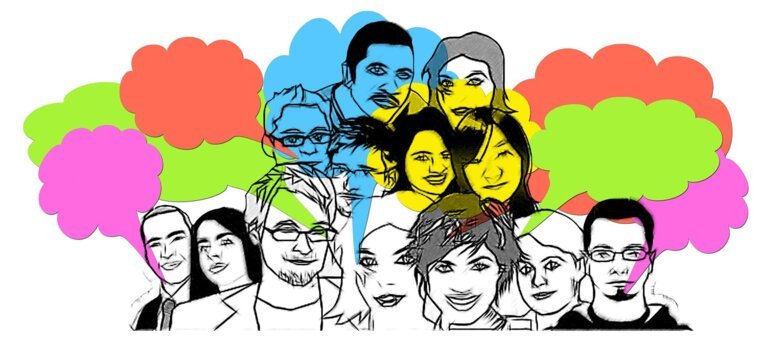Transparency important in helping sceptics overcome their fear of vaccines
February 2021 saw the publication of a DN/Ipsos survey showing an increase in the percentage of Swedes intending to take a COVID-19 vaccine. Despite this rise, almost one in five stated that they were either uncertain about or had simply decided not to get vaccinated. According to researchers at Karolinska Institutet, it is important to take people’s concerns seriously and to inform them of both the pros and cons of vaccines.

Text: Magnus Trogen Pahlén, in translation from Swedish
First published on ki.se in February 2021.
Erik Andersson is a psychologist and docent at Karolinska Institutet’s Department of Clinical Neuroscience who, among other things, conducts research into excessive anxiety. According to him, people’s anxiety is often rooted in a perceived lack of information and knowledge. It is therefore important to have good pedagogical models for explaining the consequences of choosing to – or choosing not to – be vaccinated, as well as to highlight the pros and cons equally clearly.
“Contributing with information is key, to not shirk from showing the risks. Instead, show what the available data tells us about both the effects and side-effects. In my experience, it’s important to be completely transparent about the pros and cons in order to convince someone in a good way,” says Erik Andersson.
Private risk outweighs collective good
Meanwhile, Erik Andersson believes that a good pedagogical model is lacking to really reach out with the benefits of a vaccination programme, such as that against COVID-19. Vaccines are traditionally presented as a means of benefitting the collective, a way of contributing to society.

“But even if the outcome is collective, any side-effects are personal. This leaves some feeling that the personal risk is simply too great to make that contribution.”
The key is to show the way to knowledge. Rather than referring those who feel uncertain to the opinions of the authorities, encourage them to seek the information themselves from reliable sources.
“This provides people with the opportunity to make a well-informed decison on the issue of vaccination,” says Erik Andersson.
Erik Andersson has developed a digital program for cognitive behavioral therapy (CBT) to reduce people’s unhealthy anxieties about COVID-19. This provides participants with various strategies to examine their concerns.
“My advice is to define your fear: what is it you think might go wrong? And then try to find out more about the negative consequences. Don’t try to convince yourself that your thinking is wrong, just highlight the pros and cons for yourself. Once all of the cards are on the table, you will make better decisions.”
According to Erik, feeling uncertainty and fear in the face of a new vaccine is completely natural.
“We are cautious by nature as this helps us from an evolutionary point of view. A vaccine involves introducing a foreign substance into our body, something that some people react against instinctively,” says Erik Andersson.
Good communication is a cornerstone
Maike Winters, a researcher at the Department of Global Public Health, has studied the role of communication in fighting the outbreak of Ebola in Sierra Leone between 2014 and 2016. She affirms that good communication is a cornerstone in fighting an epidemic.

“Only with the right information can we confront people’s concerns and help them to follow the established recommendations and guidelines. If people feel that nobody is listening to them, they will also find it difficult to follow the instructions given to them,” says Maike Winters.
That said, it is also vital to use facts to correct misleading or false information.
“But simply telling people they are wrong doesn’t work. Respond to inaccuracies with trusted sources that provide facts. And repeat the correct information over time,” says Maike Winters.
Tips and inspiration
 Photo: Pixabay/public domain
Photo: Pixabay/public domainTalk about vaccines!
Claims made by friends and family members can often outweigh what the experts and authorities are saying. Here are some tips to consider before talking to a person who is hesitant about getting vaccinated.
